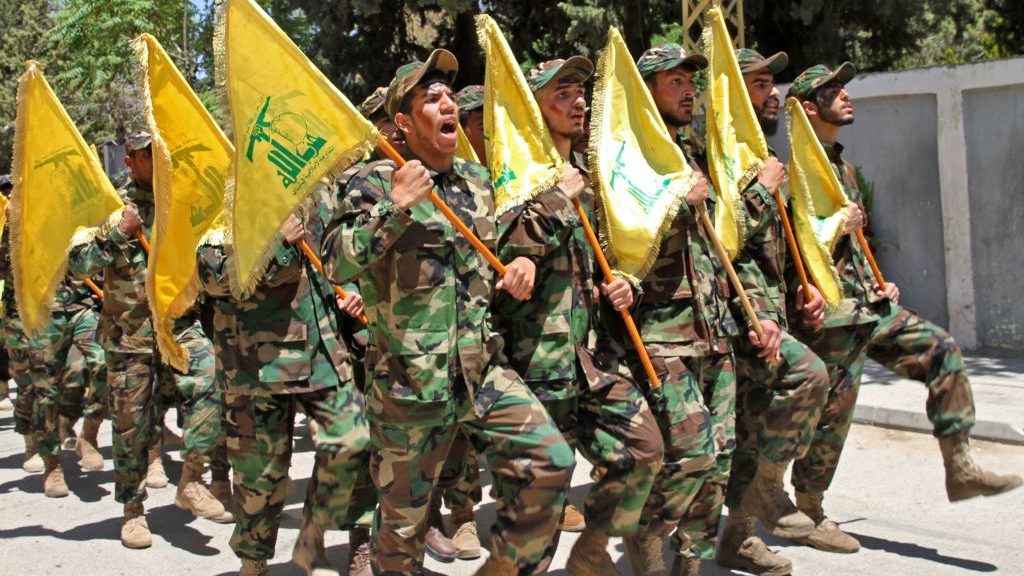If Hizbullah Attacks, We Will ‘Strike With Immense Power,’ Israel’s Military Chief Warns Lebanon
‘I recommend Lebanese civilians leave the moment tensions begin,’ Lt. Gen. Aviv Kochavi says
Israel Defense Forces Chief of Staff Lt. Gen. Aviv Kochavi issued a stark warning to Lebanon about the IDF’s plans for the next war with Hizbullah, the Shiite militia that is the strongest force in the Land of the Cedars and which is sworn to Israel’s destruction.
“We are on one hand going to strike with immense power, and on the other hand we will explicitly give them warning and let them leave,” the top general said Sunday, speaking in the central Israel city of Modi’in, at the first Israeli Home Front Readiness Conference for dealing with major emergencies.
“I say here, to the citizens of Lebanon, first and foremost, not only do I recommend you leave when the war begins, I recommend you leave the moment tensions begin, before the first shot is fired, because the power of our attacks will be something you have never seen before,” he said.
Kochavi, 58, was a platoon leader and then a company commander in Lebanon early in his career, and later a battalion and brigade leader, also in Lebanon.
Lebanese Minister of Culture Mohammad al-Mortada reacted to Kochavi’s remarks, tweeting: “If we are to move then we will head south… YES..& it will not be for a SHORT stay.”
Kochavi, in his speech at the conference, spoke about changing the paradigm of “proportionality” to one of “relativity, between what we must do to protect our civilians, and what will happen to the enemy as a result of our attacks.”
It will be difficult, we must admit that. We will see rockets and missiles hitting us, and they will cause damage, to people and to property. We must look reality straight in the eyes.
He then accused the Iranian-backed Hizbullah of being a “terror army, aiming its weapons at civilians,” adding that “the way it operates requires a new perspective on international law from whoever wants to deal with the wars of the present, and not with those of the past.”
Give the gift of hope
We practice what we preach:
accurate, fearless journalism. But we can't do it alone.
- On the ground in Gaza, Syria, Israel, Egypt, Pakistan, and more
- Our program trained more than 100 journalists
- Calling out fake news and reporting real facts
- On the ground in Gaza, Syria, Israel, Egypt, Pakistan, and more
- Our program trained more than 100 journalists
- Calling out fake news and reporting real facts
Join us.
Support The Media Line. Save democracy.
The general’s speech at the summit, a platform for Israeli senior leadership to discuss the Home Front Command’s readiness for the next war and for other major emergencies such as a large earthquake, was attended by Minister of Interior Ayelet Shaked, OC Home Front Command Maj. Gen. Uri Gordin, Deputy Defense Minister Alon Schuster, and representatives of the Israel Police and emergency first responders.
Kochavi discussed the situation of the Israel’s home front in such a war, saying: “It will be difficult, we must admit that. We will see rockets and missiles hitting us, and they will cause damage, to people and to property. We must look reality straight in the eyes.”
Israel will be hit with “far more than 300 rockets a day,” and the war “will go on for a long time,” he said.
During the 2006 Israel-Hizbullah conflict, known in Israel as the Second Lebanon War, and in Lebanon as the July War, the Shiite organization fired more than 100 rockets per day into Israel.
Kochavi spoke three days after Hizbullah Secretary General Hassan Nasrallah threatened to prevent Israel from extracting gas from the disputed Karish offshore gas reservoir in the Mediterranean Sea.
“The resistance cannot stand idly by in front of the looting of Lebanon’s wealth, and it will not stand idly by,” Nasrallah said, warning that “all options are open.”
An American-mediated effort to forge a compromise on the right to extract gas from the reservoir is ongoing.
Israel and Hizbullah have been preparing for war ever since Israel retreated from southern Lebanon in 2000, in a race of arms acquisition and intelligence gathering that has created a balance of terror between the sides.
Israel Air Force jets, drones and missiles entered Lebanese airspace more than 22,000 times in the past 15 years, the Lebanese advocacy website AirPressure.info recently claimed.
Israel held a war scenario exercise three weeks ago, simulating a full confrontation with Hizbullah. Such a conflict would, according to the military’s estimates, produce thousands of casualties in Lebanon, and hundreds in Israel. Based on the drill, Israel expects that Hizbullah would fire nearly 1,500 rockets into Israel every day as long as the war continues.
Kochavi, in his speech at the conference, explained that most of Hizbullah’s arms are randomly fired “statistical weapons,” while Israel uses “high precision defense systems.”
Hizbullah has been attempting to turn its older-generation rockets into high-precision missiles with GPS devices supplied to the organization by Iran’s Islamic Revolutionary Guards Corp. This project is one possible explanation for the Israel-attributed attacks on Syrian air traffic infrastructures, which have escalated in the last few months.
Damascus International Airport was bombed on Friday, allegedly by Israeli aircraft. The attack caused significant damage; flights to and from the airport have been suspended until further notice.
Kochavi hinted at the attack in his speech when he said that “any infrastructure used for terror purposes is a legitimate target for us.”



